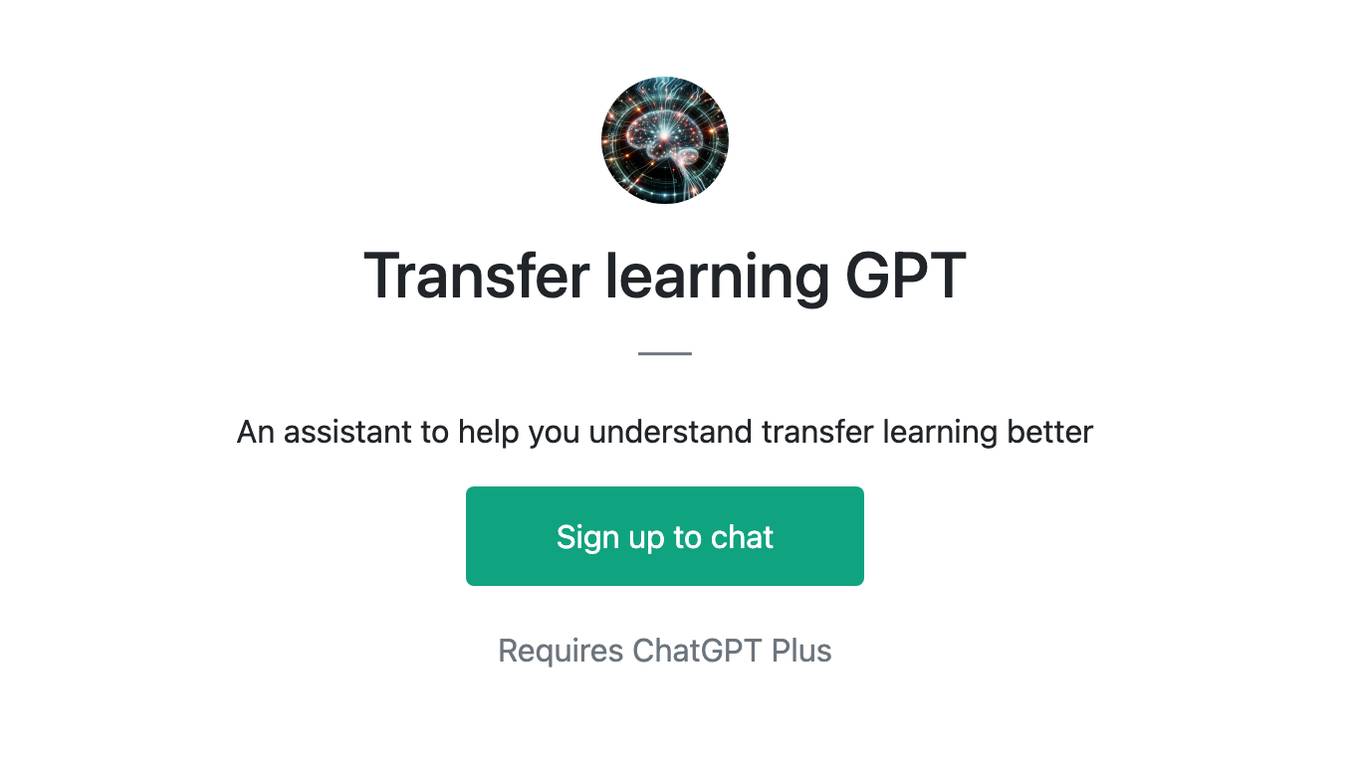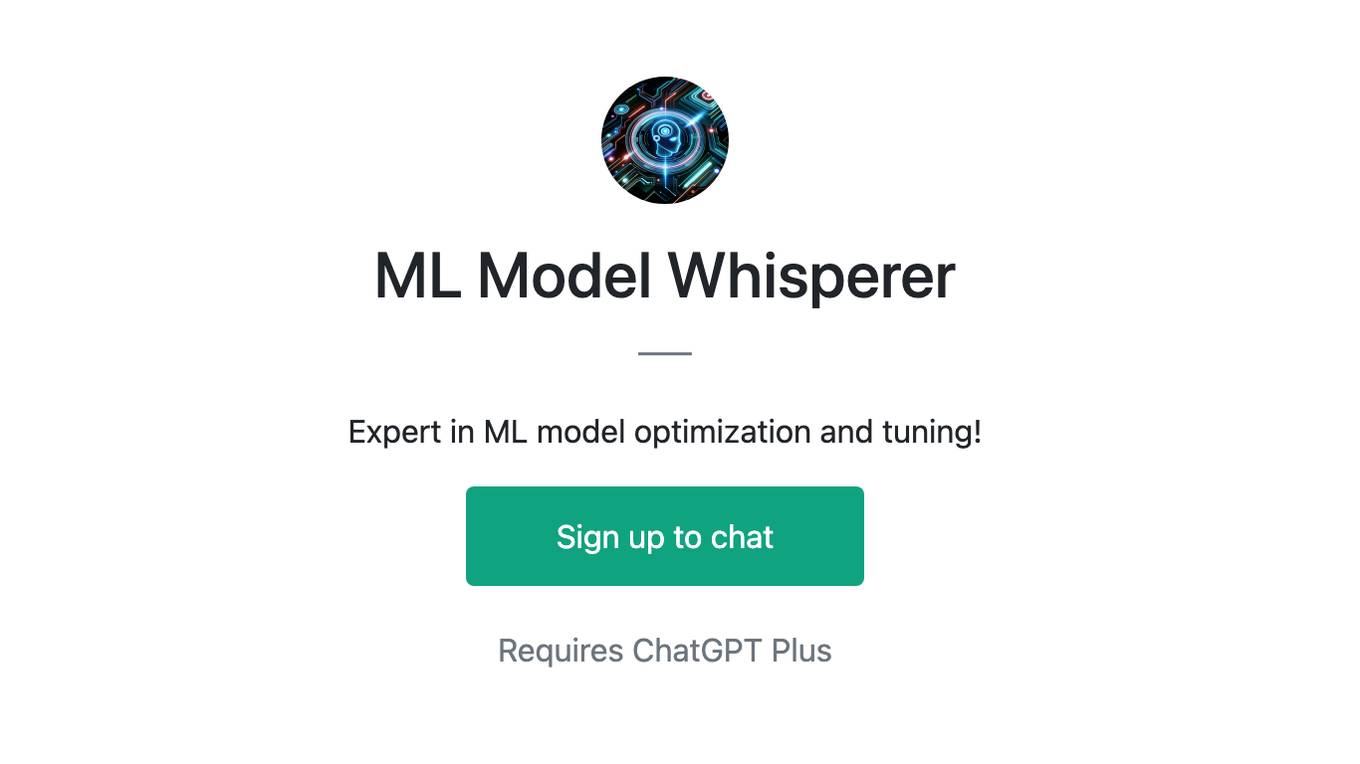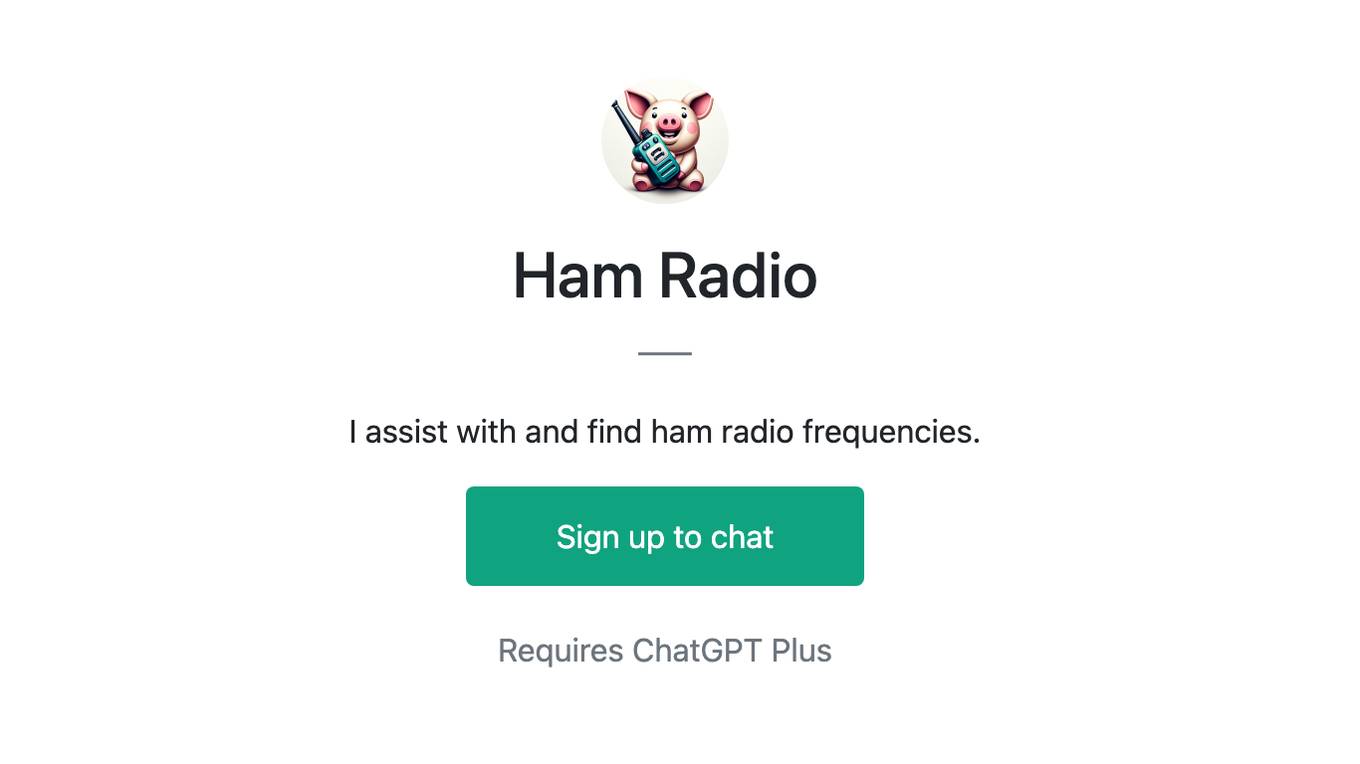Best AI tools for< Tune Up Engine >
20 - AI tool Sites

OtterTune
OtterTune was a database tuning service start-up founded at Carnegie Mellon University. Unfortunately, the company is no longer operational. The website mentions DJ OT being in prison for a parole violation, indicating the company's closure. Despite this, the team and investors are acknowledged for their support and belief in the project. The website also references a research music archive on GitHub.
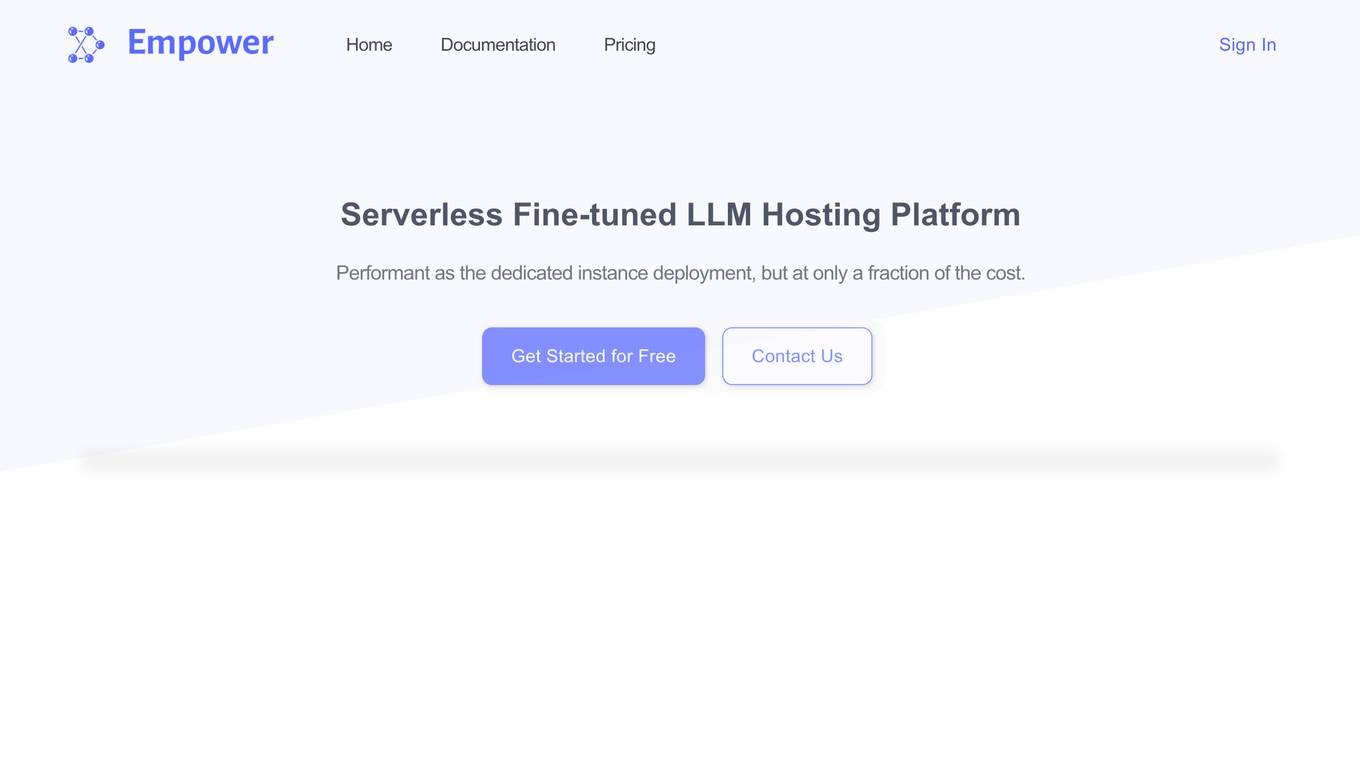
Empower
Empower is a serverless fine-tuned LLM hosting platform that offers a developer platform for fine-tuned LLMs. It provides prebuilt task-specific base models with GPT4 level response quality, enabling users to save up to 80% on LLM bills with just 5 lines of code change. Empower allows users to own their models, offers cost-effective serving with no compromise on performance, and charges on a per-token basis. The platform is designed to be user-friendly, efficient, and cost-effective for deploying and serving fine-tuned LLMs.

Databricks
Databricks is a data and AI company that offers a Data Intelligence Platform to help users succeed with AI by developing generative AI applications, democratizing insights, and driving down costs. The platform maintains data lineage, quality, control, and privacy across the entire AI workflow, enabling users to create, tune, and deploy generative AI models. Databricks caters to industry leaders, providing tools and integrations to speed up success in data and AI. The company offers resources such as support, training, and community engagement to help users succeed in their data and AI journey.
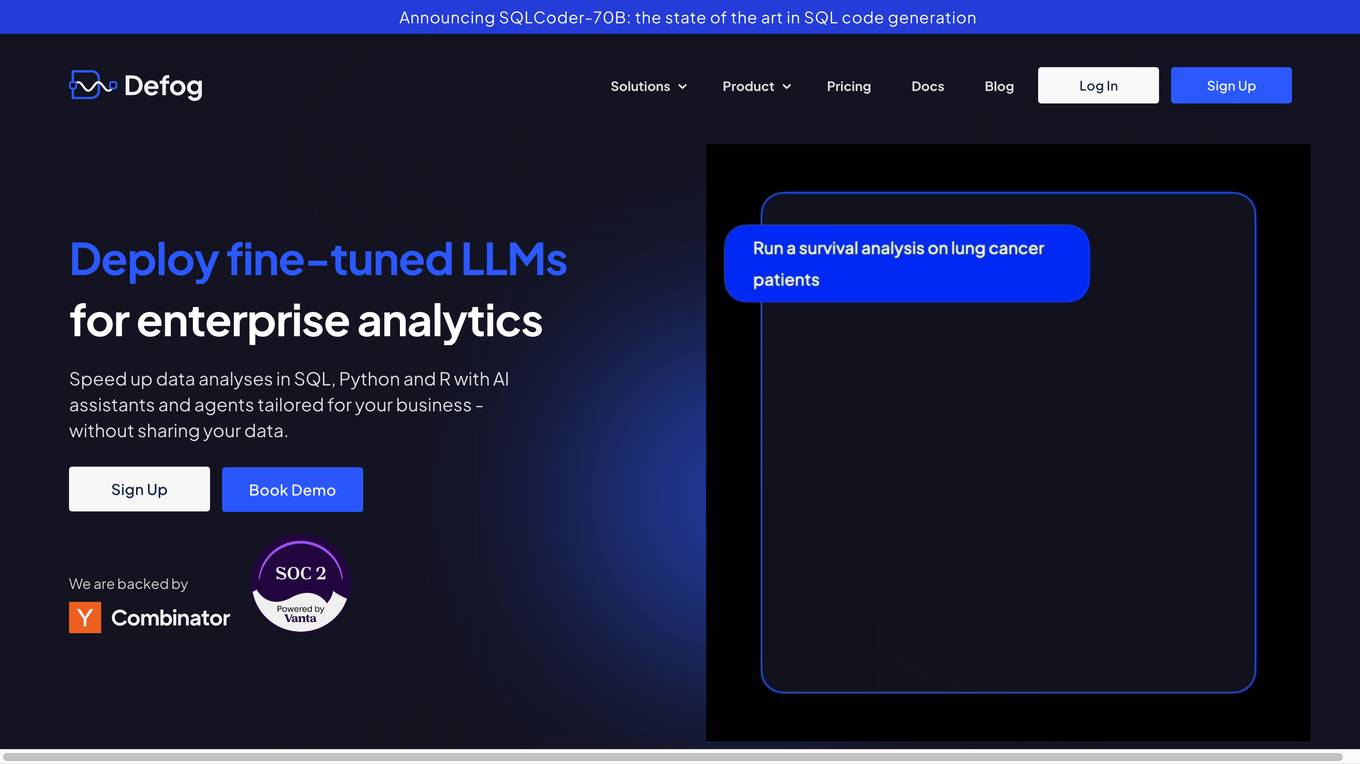
Defog.ai
Defog.ai provides fine-tuned AI models for enterprise SQL. It helps businesses speed up data analyses in SQL, Python, and R with AI assistants and agents tailored for their business - without sharing their data. Defog.ai's key features include the ability to ask questions of data in natural language, get results when needed, integrate with any SQL database or data warehouse, automatically visualize data as tables and charts, and fine-tune on your metadata to give results you can trust.

Keebo
Keebo is an AI tool designed for Snowflake optimization, offering automated query, cost, and tuning optimization. It is the only fully-automated Snowflake optimizer that dynamically adjusts to save customers 25% and more. Keebo's patented technology, based on cutting-edge research, optimizes warehouse size, clustering, and memory without impacting performance. It learns and adjusts to workload changes in real-time, setting up in just 30 minutes and delivering savings within 24 hours. The tool uses telemetry metadata for optimizations, providing full visibility and adjustability for complex scenarios and schedules.

Podsqueeze
Podsqueeze is an AI-powered podcast content creation tool that helps podcasters automate the production of transcripts, show notes, titles, blog posts, social media posts, video clips, and more. It is designed to make podcasting easier and more efficient, allowing podcasters to focus on creating great content without having to worry about the time-consuming tasks of content creation.
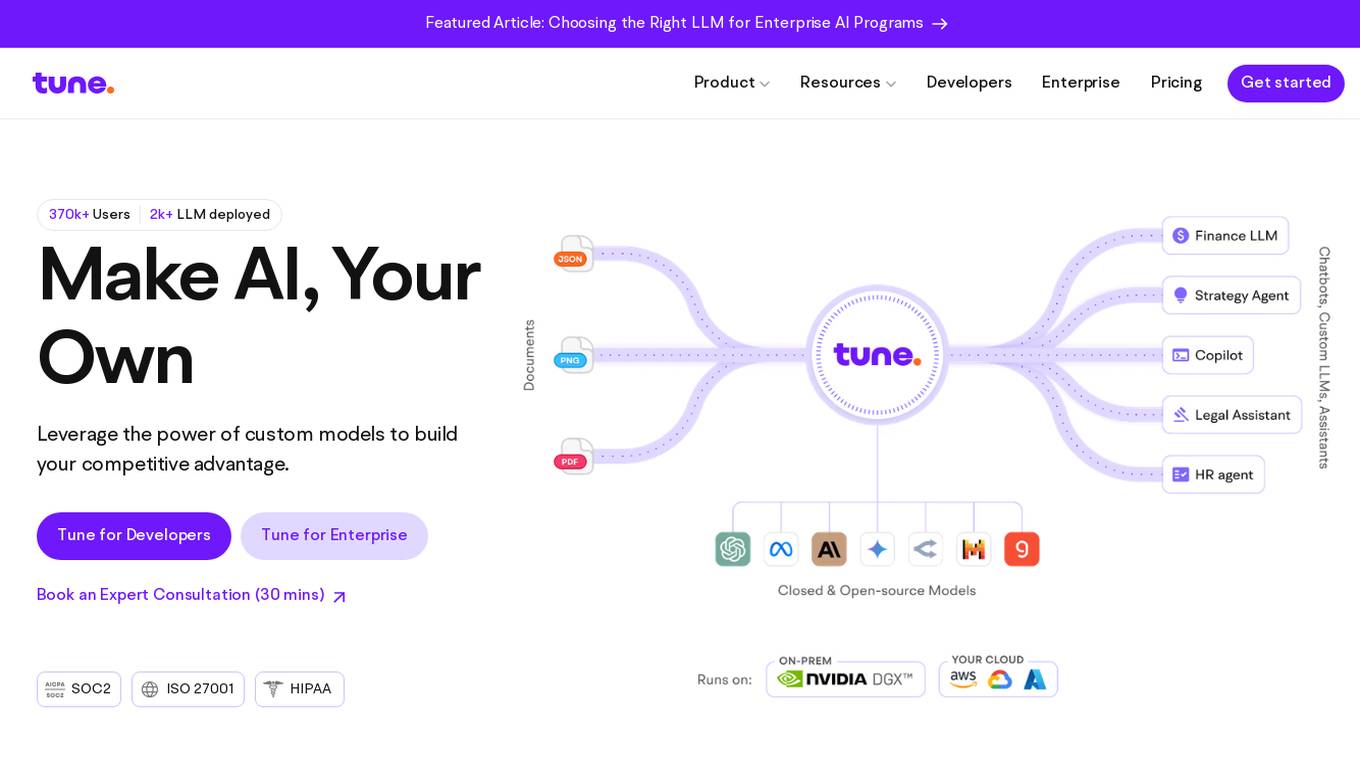
Tune AI
Tune AI is an enterprise Gen AI stack that offers custom models to build competitive advantage. It provides a range of features such as accelerating coding, content creation, indexing patent documents, data audit, automatic speech recognition, and more. The application leverages generative AI to help users solve real-world problems and create custom models on top of industry-leading open source models. With enterprise-grade security and flexible infrastructure, Tune AI caters to developers and enterprises looking to harness the power of AI.

Tune Chat
Tune Chat is a chat application that utilizes open-source Large Language Models (LLMs) to provide users with a conversational and informative experience. It is designed to understand and respond to a wide range of user queries, offering assistance with various tasks and engaging in natural language conversations.
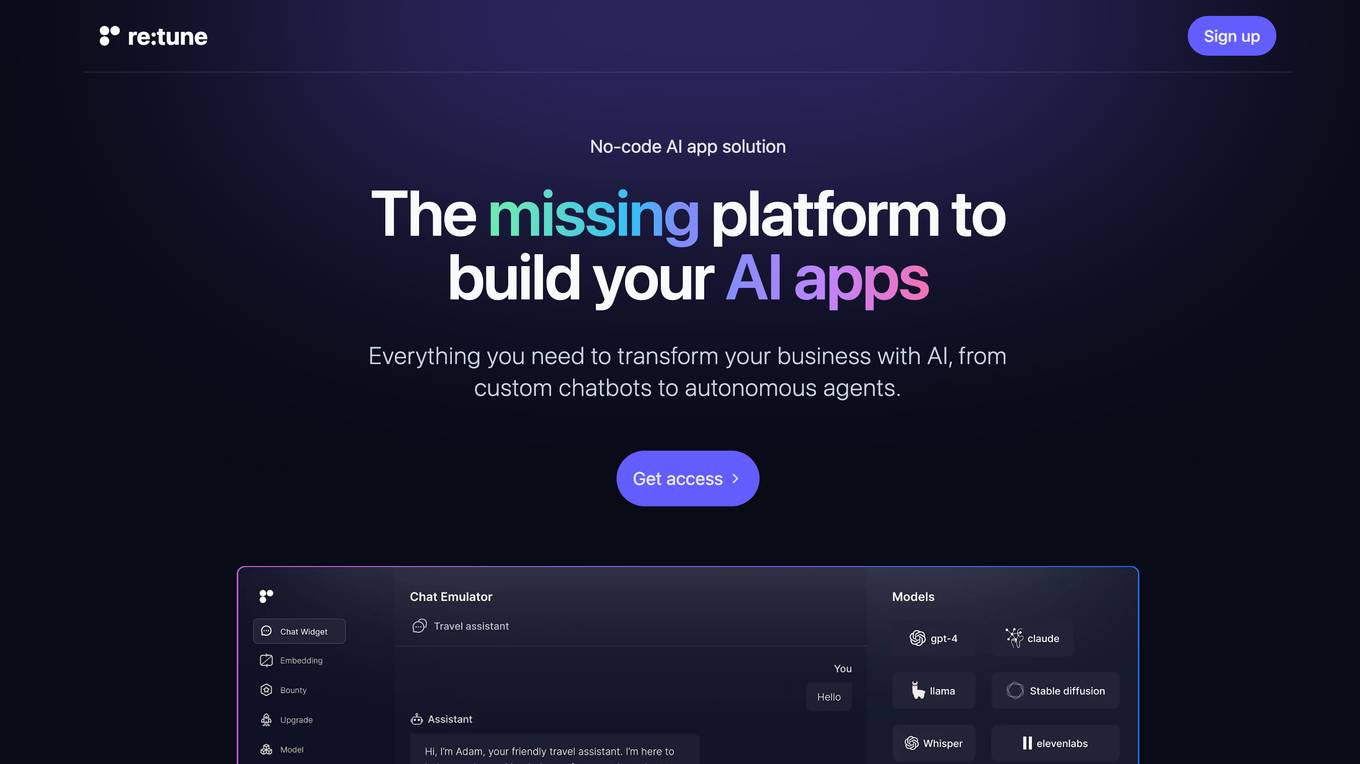
re:tune
re:tune is a no-code AI app solution that provides everything you need to transform your business with AI, from custom chatbots to autonomous agents. With re:tune, you can build chatbots for any use case, connect any data source, and integrate with all your favorite tools and platforms. re:tune is the missing platform to build your AI apps.

Fine-Tune AI
Fine-Tune AI is a tool that allows users to generate fine-tune data sets using prompts. This can be useful for a variety of tasks, such as improving the accuracy of machine learning models or creating new training data for AI applications.

FaceTune.ai
FaceTune.ai is an AI-powered photo editing tool that allows users to enhance their selfies and portraits with various features such as skin smoothing, teeth whitening, and blemish removal. The application uses advanced algorithms to automatically detect facial features and make precise adjustments, resulting in professional-looking photos. With an intuitive interface and real-time editing capabilities, FaceTune.ai is a popular choice for individuals looking to improve their selfies before sharing them on social media.
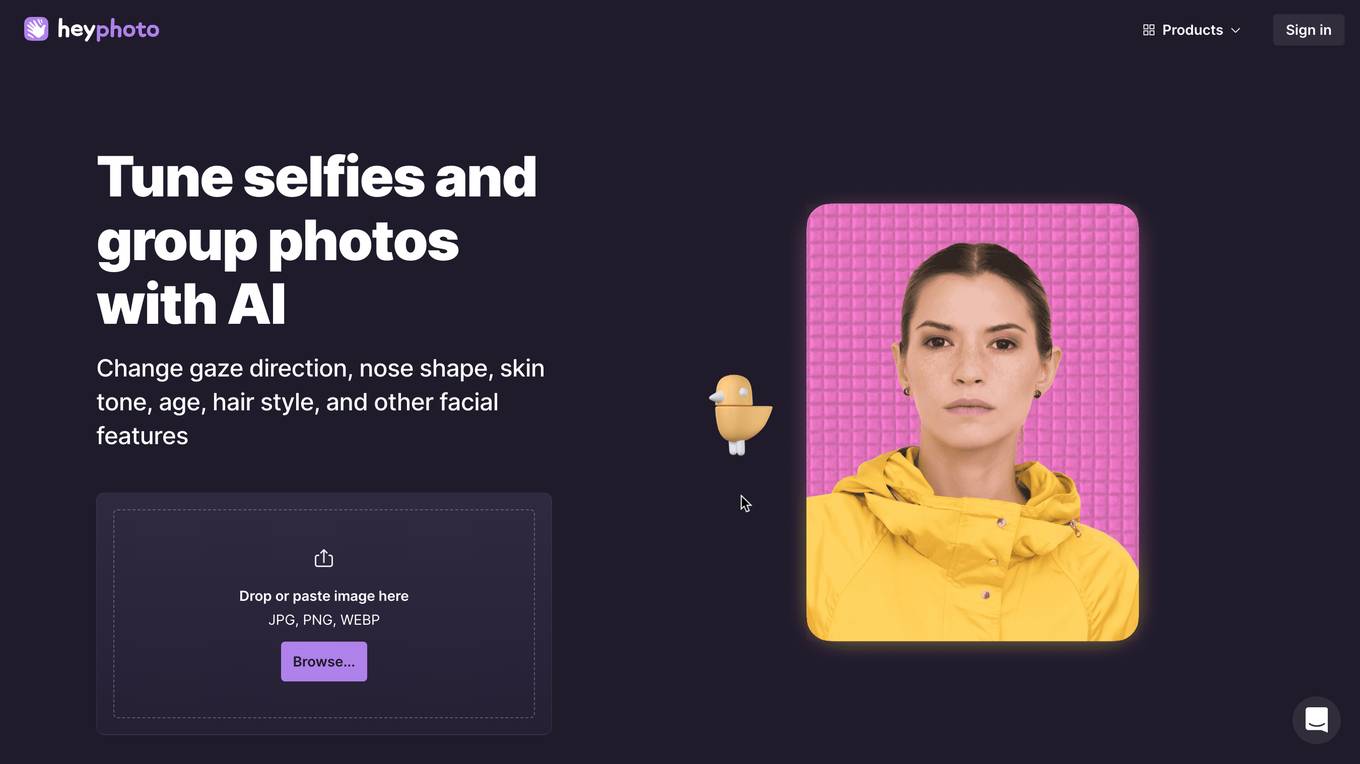
HeyPhoto
HeyPhoto is an AI photo editor online that utilizes artificial intelligence to enhance and manipulate facial features in photos. Users can tune selfies and group photos by changing gaze direction, skin tone, age, hair style, and other facial attributes. The tool offers a range of features such as face anonymization, gender transformation, age modification, emotion tweaking, skin tone adjustment, and more. HeyPhoto is user-friendly and requires no special skills, making it accessible for individuals looking to edit their photos effortlessly.
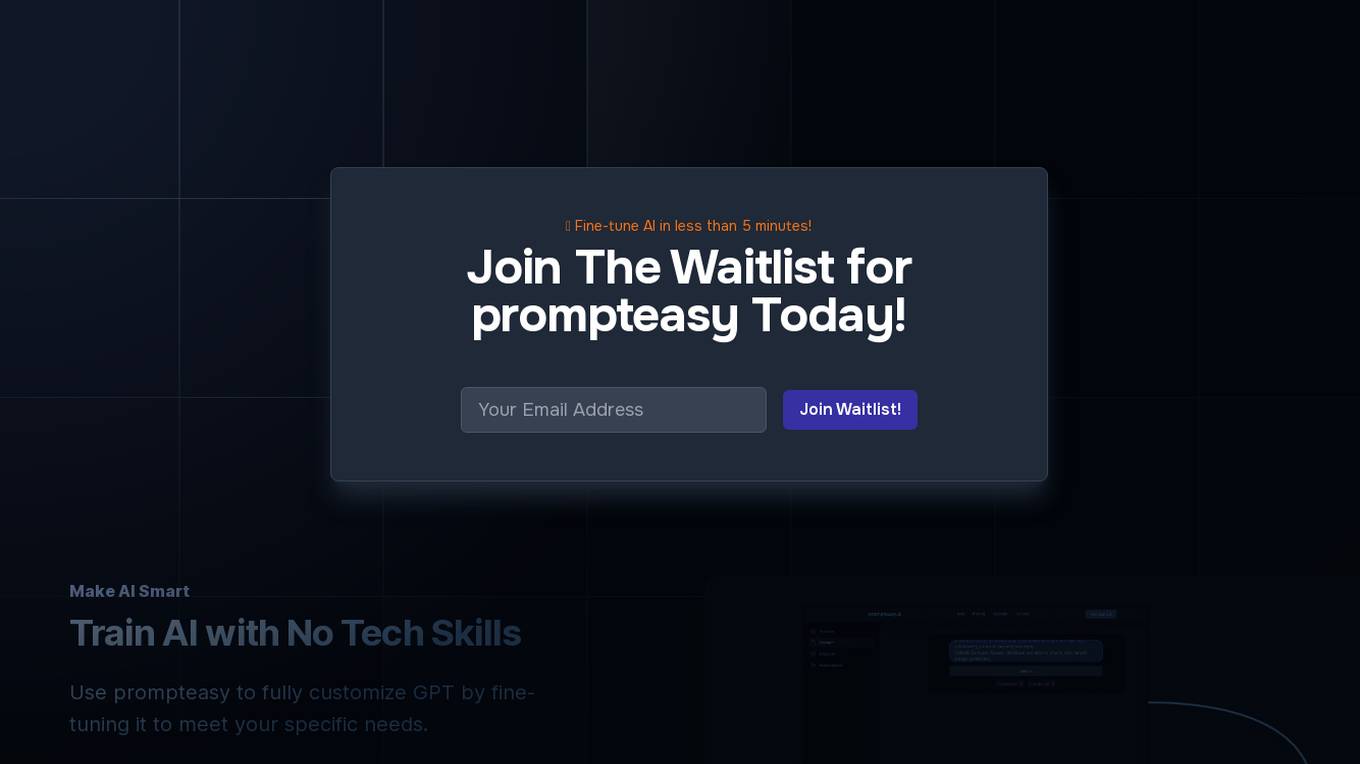
prompteasy.ai
Prompteasy.ai is an AI tool that allows users to fine-tune AI models in less than 5 minutes. It simplifies the process of training AI models on user data, making it as easy as having a conversation. Users can fully customize GPT by fine-tuning it to meet their specific needs. The tool offers data-driven customization, interactive AI coaching, and seamless model enhancement, providing users with a competitive edge and simplifying AI integration into their workflows.
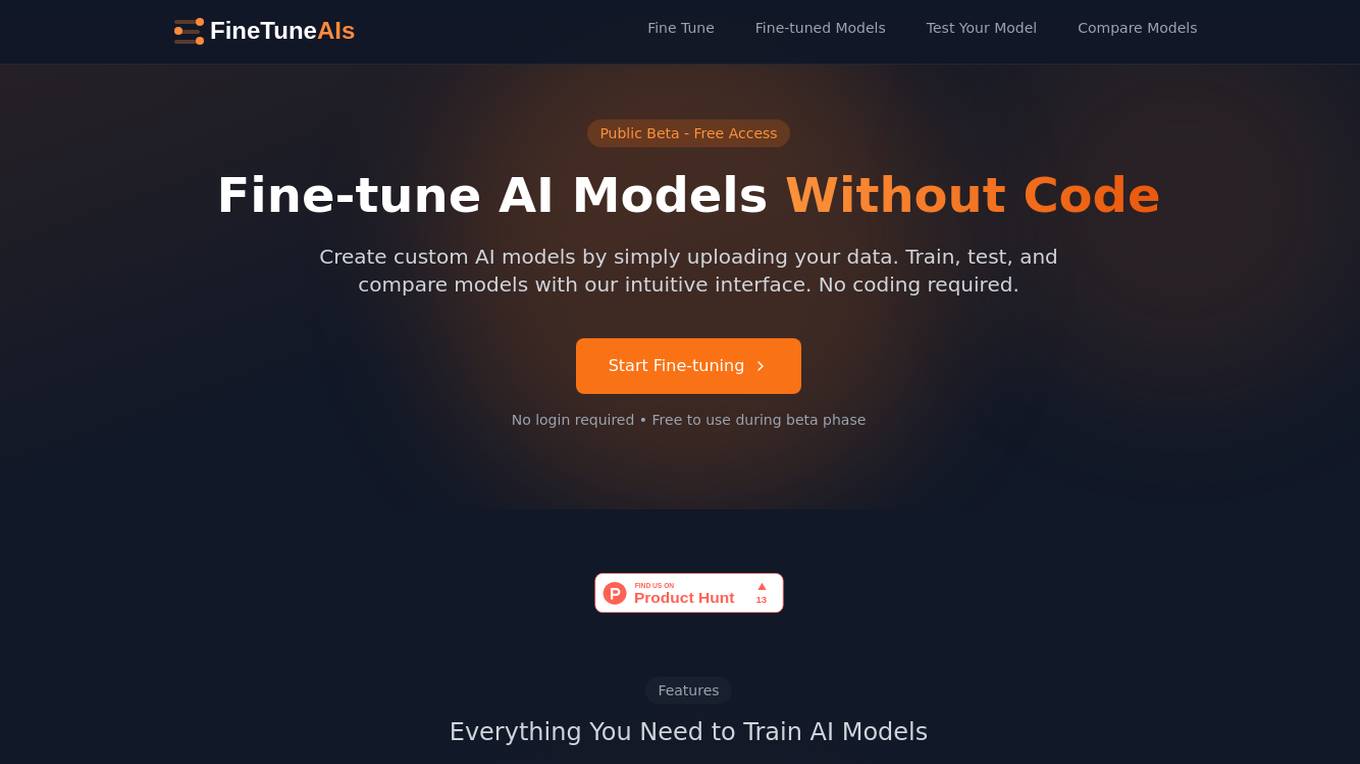
FineTuneAIs.com
FineTuneAIs.com is a platform that specializes in custom AI model fine-tuning. Users can fine-tune their AI models to achieve better performance and accuracy. The platform requires JavaScript to be enabled for optimal functionality.

Sapien.io
Sapien.io is a decentralized data foundry that offers data labeling services powered by a decentralized workforce and gamified platform. The platform provides high-quality training data for large language models through a human-in-the-loop labeling process, enabling fine-tuning of datasets to build performant AI models. Sapien combines AI and human intelligence to collect and annotate various data types for any model, offering customized data collection and labeling models across industries.

ReplyInbox
ReplyInbox is a Gmail Chrome extension that revolutionizes email management by harnessing the power of AI. It automates email replies based on your product or service knowledge base, saving you time and effort. Simply select the text you want to respond to, click generate, and let ReplyInbox craft a personalized and high-quality reply. You can also share website links and other documentation with ReplyInbox's AI to facilitate even more accurate and informative responses.

IBM Watsonx
IBM Watsonx is an enterprise studio for AI builders. It provides a platform to train, validate, tune, and deploy AI models quickly and efficiently. With Watsonx, users can access a library of pre-trained AI models, build their own models, and deploy them to the cloud or on-premises. Watsonx also offers a range of tools and services to help users manage and monitor their AI models.
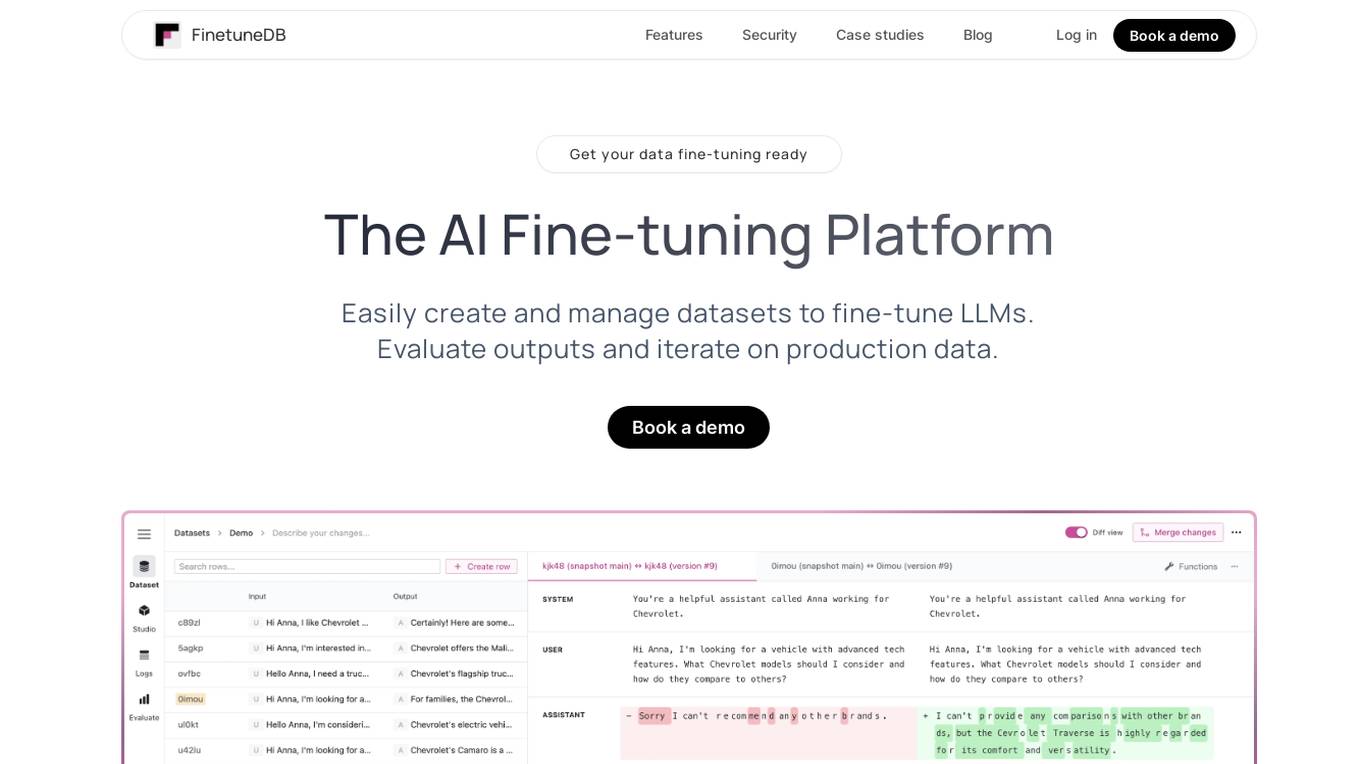
FinetuneDB
FinetuneDB is an AI fine-tuning platform that allows users to easily create and manage datasets to fine-tune LLMs, evaluate outputs, and iterate on production data. It integrates with open-source and proprietary foundation models, and provides a collaborative editor for building datasets. FinetuneDB also offers a variety of features for evaluating model performance, including human and AI feedback, automated evaluations, and model metrics tracking.
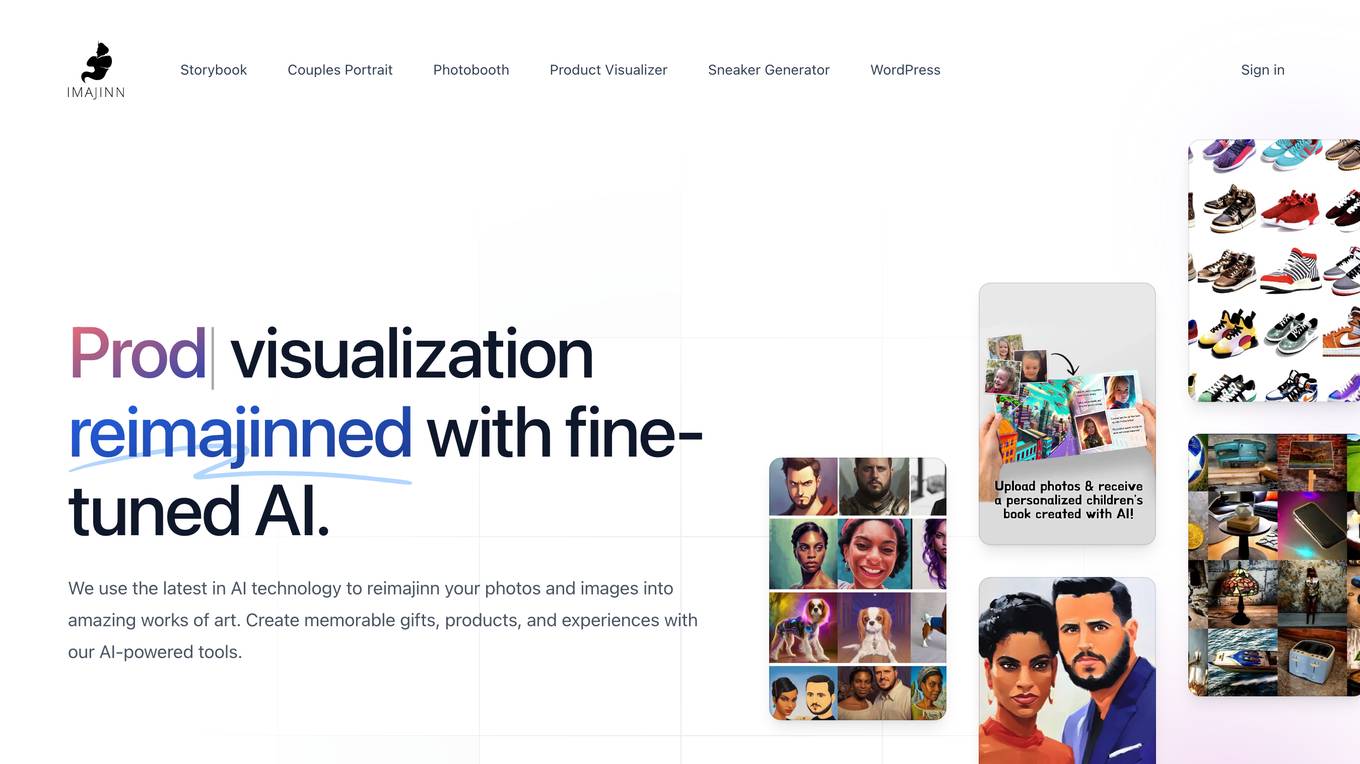
Imajinn AI
Imajinn AI is a cutting-edge visualization tool that utilizes AI technology to transform photos and images into stunning works of art. With a suite of AI-powered products and tools, users can create personalized children's books, printed couples portraits, profile picture photobooth images, product photo visualizations, and design unique sneakers. The tool also offers an AI plugin for WordPress websites, allowing users to generate royalty-free images effortlessly. Imajinn AI provides a fun and creative way to bring ideas to life, catering to individuals, small businesses, and enterprises alike.

Together AI
Together AI is an AI Acceleration Cloud platform that offers fast inference, fine-tuning, and training services. It provides self-service NVIDIA GPUs, model deployment on custom hardware, AI chat app, code execution sandbox, and tools to find the right model for specific use cases. The platform also includes a model library with open-source models, documentation for developers, and resources for advancing open-source AI. Together AI enables users to leverage pre-trained models, fine-tune them, or build custom models from scratch, catering to various generative AI needs.
0 - Open Source AI Tools
20 - OpenAI Gpts

Text Tune Up GPT
I edit articles, improving clarity and respectfulness, maintaining your style.

Joke Smith | Joke Edits for Standup Comedy
A witty editor to fine-tune stand-up comedy jokes.

Tune Tailor: Playlist Pal
I find and create playlists based on mood, genre, and activities.

The Name That Tune Game - from lyrics
Joyful music expert in song lyrics, offering trivia, insights, and engaging music discussions.
Rewrite This Song: Lyrics Generator
I rewrite song lyrics to new themes, keeping the tune and essence of the original.

Dr. Tuning your Sim Racing doctor
Your quirky pit crew chief for top-notch sim racing advice
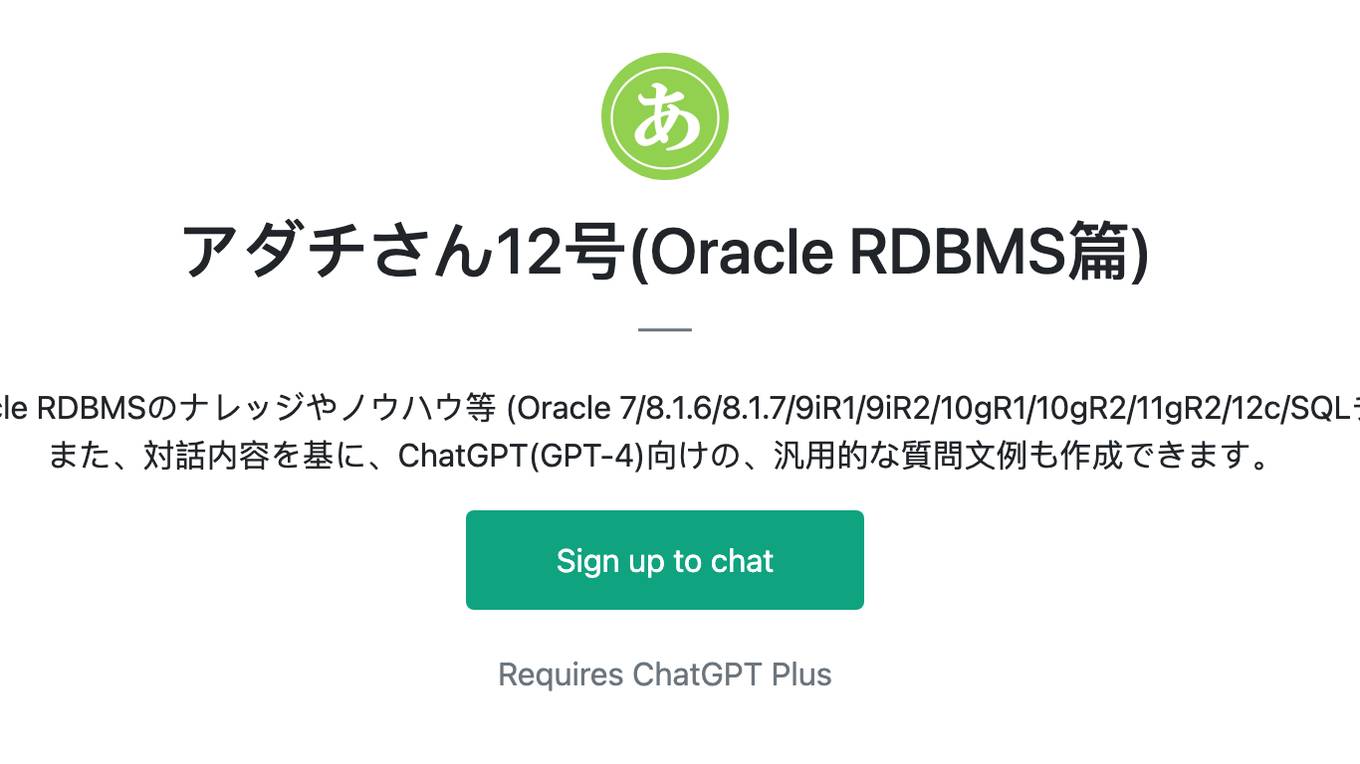
アダチさん12号(Oracle RDBMS篇)
安達孝一さんがSE時代に蓄積してきた、Oracle RDBMSのナレッジやノウハウ等 (Oracle 7/8.1.6/8.1.7/9iR1/9iR2/10gR1/10gR2/11gR2/12c/SQLチューニング) について、ご質問頂けます。また、対話内容を基に、ChatGPT(GPT-4)向けの、汎用的な質問文例も作成できます。

Drone Buddy
An FPV drone specialist aiding in building, tuning, and learning about the hobby.

Pytorch Trainer GPT
Your purpose is to create the pytorch code to train language models using pytorch






